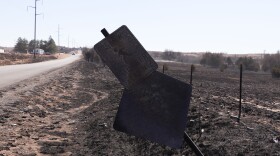The mayor of Lawton asked ChatGPT to write recommendations on how to use federal funds to address homelessness "without attracting more homeless."
Last week, city councilors unanimously accepted the AI chatbot's recommendations.
Suggestions include avoiding constructing new shelters that "may attract new clients," avoiding launching "highly visible outreach programs," and prioritizing "clients who lived in Lawton prior to homelessness."
In the same meeting on September 23, the Lawton City Council also unanimously passed an ordinance prohibiting unauthorized camping on private and public property and allowing for the removal of unattended personal items.
"The faster you pass this, the faster we take a break," Mayor Stan Booker said after introducing the measure and referencing the order of the meeting.
Booker said the ChatGPT-generated plan to address homelessness was first discussed during a Homeless Action Committee meeting earlier this month, and has received support from Captain Bryan Brinlee, who works at the Salvation Army in town.
The plan outlines how the city can spend Community Development Block Grant funds, which are provided to local governments by the U.S. Department of Housing and Urban Development to benefit low- and moderate-income community members through efforts like improving housing rehabilitation, public facilities and economic development.
"Every community I know of that's come up with the Homeless Action Plan has increased their homelessness," Booker said.
He said Brinlee told him, however much shelter space the city supplies, it will never be enough because "you're going to attract more people." Brinlee did not speak during the council meeting, but Booker read a statement that he attributed to him.
"I was recently asked whether there's a correlation between the increase in community resources and the attraction of those who are in need," Booker read. "The answer is obvious. Yes, there is a direct correlation. Anyone with experience at distributing community resources, whether food, utilities, rent assistance, clothing, household goods or other government handouts understands this reality."
Multiple council members voiced their support for Booker's ChatGPT-fueled plan before and after voting.
"This homeless situation to me, it's gotten out of control," said Ward 7 Councilor Sherene L. Williams.
"I agree with the mayor that we don't need to make more places for the homeless to stay because these people don't even know how to be responsible, to take care of a house, to pay their bills and to take care of those things," said Ward 5 Councilor Allan Hampton. "These people have mental problems, drug problems, alcohol problems. Those are the people that are causing the problem in our community."
The council discussed possible ways to confirm an individual's connection to Lawton before providing support with federal grant funds, but did not land on a final conclusion. Suggestions included determining whether someone went to school in the area, had a previous address or family in the city or whether they were registered to vote in Lawton.
Booker offered up each suggestion, but said he wasn't sure about using voter registration because "anybody can go down and register to vote."
"If you add to the shelter space, you're going to attract people," he said. "Whatever you build isn't going to be enough. I'm not interested in that. I'm not talking to people that are interested in attracting homeless."
He said the City of Lawton does not have a responsibility to house people, but rather should be focusing on maintaining public safety. A similar sentiment has been expressed by Gov. Kevin Stitt, who sent out a press release commending Booker's actions shortly after the council meeting.
"I applaud Mayor Booker for stepping up to address the issue of homelessness in Lawton," Stitt wrote. "It is not compassionate to let people live on the streets, but it is the job of state and local leadership to enforce the law."
Stitt launched a two-week campaign to forcibly clear encampments in Tulsa from state property earlier this month. He tasked the state's Highway Patrol with carrying out the directive, which reportedly cleared 64 sites, and connected one person to a day shelter. Everyone else chose to vacate state land.
Local providers in Tulsa say Stitt's efforts will have negative long-term consequences, pushing people further into homelessness after losing valuable and life-supporting supplies.
Others across the state have lauded Stitt's efforts, including Sen. Lisa Standridge, R-Norman, who immediately asked the governor to "bring Operation SAFE to Norman as soon as possible."
So far, the Governor's Office has not confirmed plans to expand enforcement efforts past Tulsa.
"There was a lots of publicity, lots of politics involved but at the end of the day, the governor's job is public safety and enforcing state laws and that's exactly what they did," Booker said in an interview with KSWO prior to the city council meeting. "Same thing with our camping ordinance, it's going to come up that we're not compassionate, but we need to define the roles. Our role as a municipality, as elected officials, is to provide public safety."
This report was produced by the Oklahoma Public Media Exchange, a collaboration of public media organizations. Help support collaborative journalism by donating at the link at the top of this webpage.









